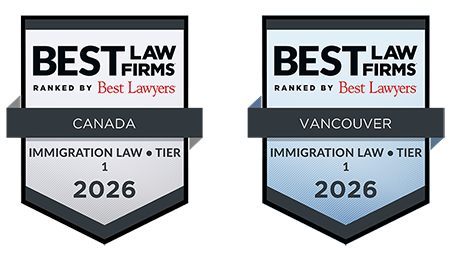On Friday, November 19, 2021 the Government of Canada announced that it will soon be expanding the list of vaccines that will be recognized for demonstrating fully vaccinated status for travellers. Readers need to become familiar with the rules for proving fully vaccinated status because it will soon be required not only to enter Canada but also to travel domestically within Canada!
Effective November 30, 2021, Canada will recognize the following three vaccines to prove fully vaccinated status: Sinopharm (also known as Covilo), Sinovac (also known as Coronavac), and COVAXIN. This is welcome news for travellers who have already received these three vaccines but were hesitant about taking one of the four currently Canadian approved vaccines for many reasons, including the costs and time associated with the process, as well as the unknowns about receiving a mix of these different vaccines.
The expanded list of approved vaccines is meant to facilitate two major policy changes in Canadian travel restrictions that will be implemented shortly.
Firstly, effective November 30, 2021, all travellers who are boarding a flight or a train with either VIA Rail or the Rocky Mountaineer will need to demonstrate fully vaccinated status. With very few exceptions, including cases where a person is medically unable to be vaccinated, this will affect all domestic and outbound travel, including international flights leaving from Canada. Readers should become familiar with these rules because it is a significant departure from the Government of Canada’s previous policy of only setting vaccination restrictions on travellers coming into Canada.
Although it may not be well known, these rules governing travel from inside Canada have already been in place since October 30, 2021, but a one-month grace period was put in place to give advance warning and time for travellers to become fully vaccinated. During this initial grace period, non-fully vaccinated travellers can still travel as normal so long as they provide proof of a negative COVID-19 test. However, this grace period will end on November 29 just as the newly expanded list of accepted vaccines comes into effect on November 30, 2021.
Secondly, effective January 15, 2022, Canada will be eliminating the exemptions that currently allow many non-fully vaccinated travellers to enter Canada. These include international students, work permit holders, and travellers coming to Canada to reunite with family members, all of whom are currently able to enter Canada without fully vaccinated status by providing pre-entry negative COVID-19 test results and by agreeing to follow the government’s mandatory 14-day quarantining requirements after arrival. As of January 15, 2022 this will no longer be possible!
Like the changes governing travel within Canada, the elimination of exemptions is also being announced early to allow affected travellers to become fully vaccinated under the expanded list of approved vaccines. This will help alleviate the problems associated with implementing different rules at different times, specifically cases where a person can enter Canada without being fully vaccinated but then becomes ineligible to travel domestically or to even leave the country later on because of it.
As an immigration lawyer, it is truly remarkable to see the sheer number of travel restriction changes that have been made by the Government of Canada since the start of the pandemic until now. We have come a long way from banning all “non-essential” travel to Canada in early 2020 until now.
The government’s recent announcements send a clear message: going forward, whether we are Canadian citizens, permanent residents, or temporary residents in Canada, there will no longer be different rules for travelling to and within Canada based on your immigration status or purpose of entering Canada. Everyone travelling in Canada will need to become fully vaccinated in order to return to our pre-pandemic lives.





